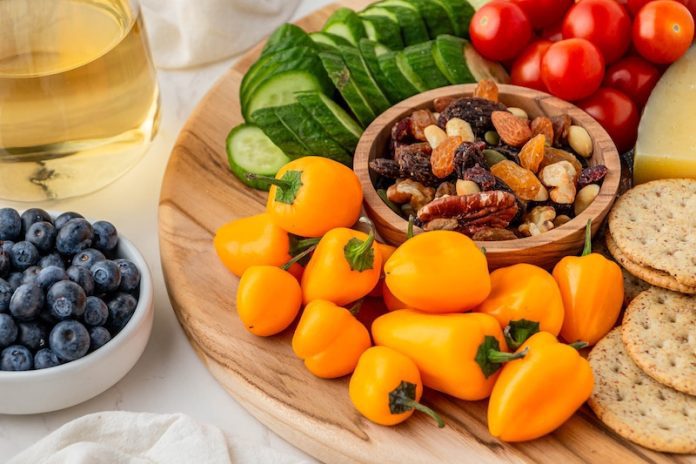
A recent study suggests that increasing nut consumption by just half a serving per day is associated with less weight gain and a lower risk of obesity.
Nuts are rich in healthy unsaturated fats, vitamins, minerals, and fiber, despite being calorie-dense.
Researchers analyzed data on weight, diet, and physical activity from three groups of participants over a span of more than 20 years.
The results showed that increasing nut consumption, including peanuts and peanut butter, was linked to less long-term weight gain and a lower risk of becoming obese.
Specifically, increasing nut consumption by half a serving per day was associated with a lower risk of gaining 2 or more kilograms over any four-year period.
A daily half-serving increase in walnut consumption was linked to a 15% lower risk of obesity.
Moreover, substituting processed meats, refined grains, or desserts with half a serving of nuts was associated with preventing weight gain ranging from 0.41 to 0.70 kilograms over a four-year period.
Increasing daily nut consumption from none to at least half a serving was linked to preventing 0.74 kilograms of weight gain, a lower risk of moderate weight gain, and a 16% lower risk of obesity compared to not eating any nuts.
Consistently consuming at least half a serving of nuts per day was associated with a 23% lower risk of gaining 5 or more kilograms and becoming obese over the same time frame.
The researchers suggest that the act of chewing nuts requires effort and may leave less energy for consuming other foods.
The high fiber content of nuts can also delay stomach emptying, leading to a longer feeling of satiety. Additionally, nut fiber binds well to fats in the gut, resulting in the excretion of more calories.
Some evidence also suggests that the high unsaturated fat content of nuts increases resting energy expenditure, further helping to prevent weight gain.
In conclusion, incorporating a handful of nuts as a snack option instead of biscuits or crisps may help prevent weight gain and curb the onset of obesity, particularly as individuals age.
Please note that the study was observational, so it cannot establish a cause-and-effect relationship. It is always recommended to consult with a healthcare professional or registered dietitian for personalized dietary advice.
If you care about weight loss, you may be interested in reading studies on the potential flu-like symptoms associated with a keto diet for weight loss and why diet drinks can lead to weight gain.
For more information about nutrition, recent studies suggest the best time to take vitamins to prevent heart disease and certain antioxidants that could help reduce the risk of dementia.
The study was published in the journal BMJ Nutrition, Prevention & Health.
Follow us on Twitter for more articles about this topic.
Copyright © 2023 Scientific Diet. All rights reserved.








